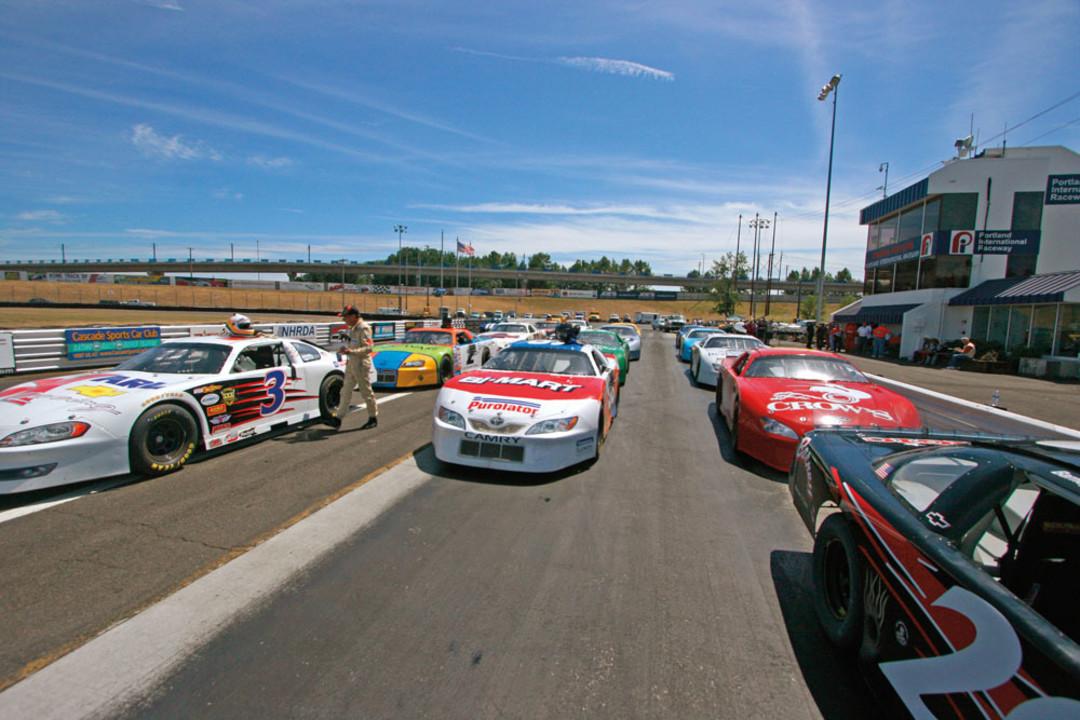Is Portland International Raceway Reaching Its Finish Line?

Image: Courtesy PIR
On a late afternoon in early summer, classic cars in luscious coats of cherry red and lime green line up outside Portland International Raceway for the season’s first “cruise-in.” Trackmaster Mark Wigginton beams with pleasure. “White hair and white mustaches!” shouts Wigginton, 62, above a live Bob Seger cover. “I’m among my people!”
Built on the site of the flooded Vanport housing development at the height of America’s early-’60s car obsession, the city-owned raceway still attracts around 1,000 vintage autos to its grassy paddock every Wednesday evening through September. It still hosts a wide range of competitive events, from late-night drag races to amateur motocross. But fans and participants for its whole range of events are aging. Demographic shifts have meant only modest financial losses so far—the track, operated by the parks bureau but charged with supporting itself, still generates about $45 million annually for Multnomah County's economy, according to a 2006 economic-impact analysis. But big questions about its future loom around the bend.
Middle-class shrinkage puts racing and collecting cars out of reach for more and more Americans. Meanwhile, fewer young people are engaging with auto racing, in part because fewer young people are engaging with autos at all.
The solution, some hope, may lie in marketing. “A supercross event, say, is as much a cultural event as a sporting event,” explains Ken Ungar, president of Indianapolis sports-marketing firm U/S Sports Advisors. PIR has entered the race for relevancy with youth-oriented events such as short-track mountain-bike racing and fun runs.
At PIR drag races, 36-year-old Jimmy Heriford is waiting to race his friend’s souped-up 1966 Fairlane 500. “It’s sad, but I think it’s going away,” he says, pointing to the sport’s increasingly prohibitive cost. “The younger generation is not into it.”
Wigginton, who plans to retire by year’s end after 14 years at PIR, isn’t so sure. “I think we overstate who we are,” he says of Portland’s bike-loving self-image. “I don’t think racing’s going away. It’s just a matter of what it changes into, and whether it can pay for itself.”
